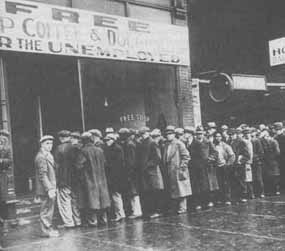How the Current Economic Climate Might Affect Your Grocery Bill
By Chuck Sudo in Food on Oct 14, 2008 5:20PM
 Watching the Dow rise and fall in recent weeks has been like riding a roller coaster with a bad case of stomach flu. It sank like a stone last week after Congress approved a $850 billion bailout and the credit markets remained frozen. This week, upon news that the Federal government will be partially nationalizing the nation's major banks, the Dow saw its biggest one-day increase ever. In a year in which we've seen skyrocketing grocery prices in relation to increased oil costs, the thought of paying even more for provisions crossed us more than once.
Watching the Dow rise and fall in recent weeks has been like riding a roller coaster with a bad case of stomach flu. It sank like a stone last week after Congress approved a $850 billion bailout and the credit markets remained frozen. This week, upon news that the Federal government will be partially nationalizing the nation's major banks, the Dow saw its biggest one-day increase ever. In a year in which we've seen skyrocketing grocery prices in relation to increased oil costs, the thought of paying even more for provisions crossed us more than once.
Specifically, we wondered if Wall Street's response to governmental (in)action would trickle down to the futures market, leading to higher prices for grain and livestock and, by extension, you and us. We contacted Chris McMahon, Senior Associate Editor of Futures Magazine, to break it down simple. For a point of reference, this exchange occurred prior to the House's original rejection of the bailout plan.
"Should the bailout be approved, the U.S. dollar would likely weaken, bolstering exports; gold and other commodities prices would then rally. Grain and livestock prices would be elevated," McMahon said. "If the bailout does not pass, the U.S. dollar would likely strengthen, weakening exports; commodity prices would then decline. Grain and livestock prices would be depressed."
That doesn't mean that now that Wall Street is getting a helping hand, we're gonna pay twice as much for flour all of a sudden. A look at futures listed at the Board of Trade website shows that — at post time — futures for corn, wheat and oats are up. Corn is up the most, likely attributed to speculation on ethanol production.